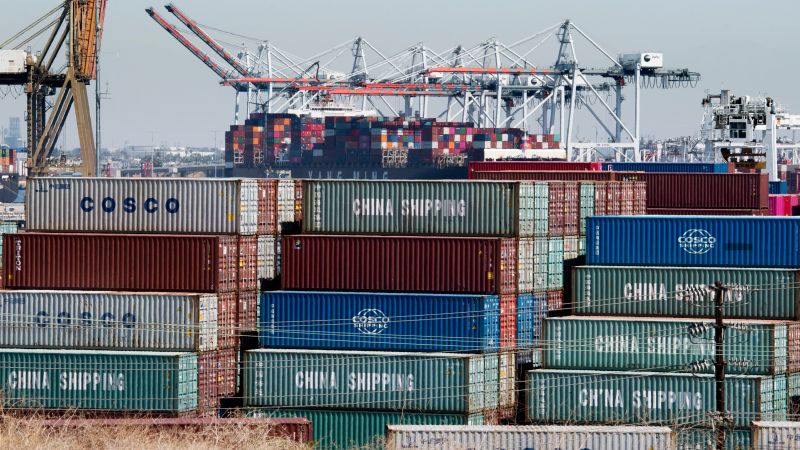Both former President Donald Trump and current President Joe Biden have shown support for increasing tariffs on certain foreign-made goods, with Trump calling for sweeping tariffs and Biden taking a more targeted approach. Trump imposed tariffs on various goods from countries like China, while Biden has announced an increase in tariffs on specific Chinese-produced goods such as electric vehicles, semiconductors, and steel. Despite their differences on other issues, both candidates agree on the need for a protectionist trade policy, even though tariffs are considered costly tools that may not always benefit domestic industries as promised.
Trump’s tariffs have been criticized for failing to boost US manufacturing and costing more jobs than they created. Studies have shown that American importers have borne the full cost of these tariffs, with US Customs and Border Protection reporting that Americans have paid nearly $236 billion in tariffs imposed by Trump. In his plans for a second term, Trump aims to add more tariffs, including a duty of at least 10% on imports from all countries, up to a 60% tariff on all Chinese imports, and a 100% tariff on all cars made outside the US. It remains unclear how he plans to implement such widespread tariffs if reelected.
Trump used tariffs as a negotiating tactic with China, aiming to pressure Beijing to address unfair trade practices like intellectual property theft and forced technology transfers. While he did get China to the negotiating table, some commitments made in the Phase One agreement, such as increasing purchases of US goods, were not fulfilled by China. A Phase Two agreement was never reached under either the Trump or Biden administrations. However, there is consensus among US business leaders and lawmakers about the need to address China’s trade policies.
Unlike Trump’s plans for widespread tariffs, Biden’s tariffs are focused solely on China. The Biden administration has announced an increase in existing tariffs on Chinese-produced goods such as steel, aluminum, semiconductors, electric vehicles, and medical products. These tariffs align with Biden’s economic policies aimed at boosting domestic manufacturing, particularly in industries like clean energy and semiconductor chips. While some industry groups and unions have welcomed the tariff increase, analysts suggest that it may have limited impact on the US steel industry due to China’s small share of US steel imports.
Biden has faced pressure to address China’s unfair trade policies, with seven Democratic senators from swing states urging him to maintain or increase the tariffs imposed by Trump on Chinese goods. The senators argue that maintaining these tariffs benefits American workers and holds China accountable for anti-competitive practices. As the review of Trump’s tariffs on Chinese goods comes to an end, the Biden administration has opted to increase some of these tariffs as part of its broader economic policies to support domestic manufacturing. The ongoing debate over tariffs remains a key issue in the upcoming presidential election, highlighting the different approaches of the two candidates to trade policy.


